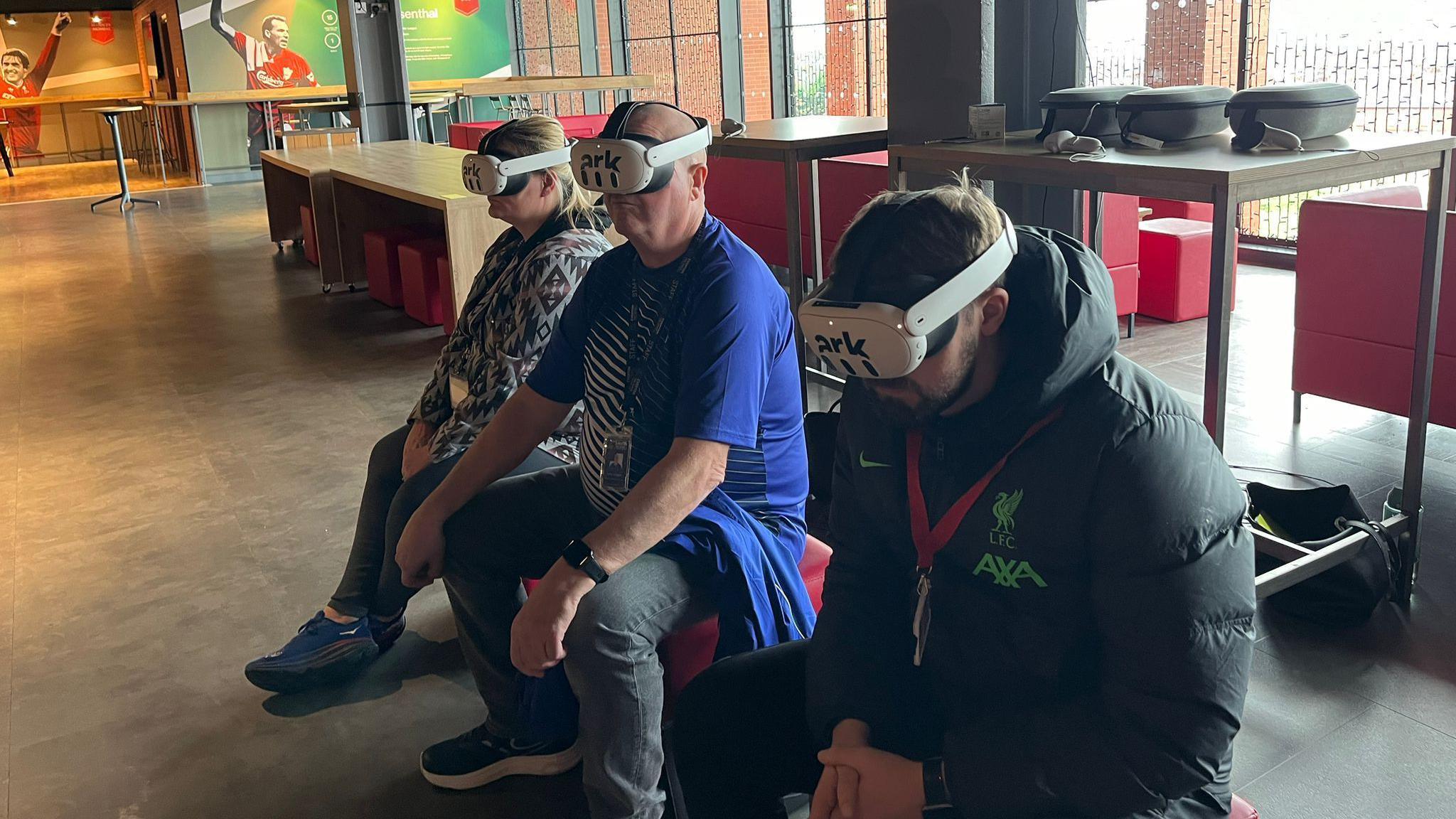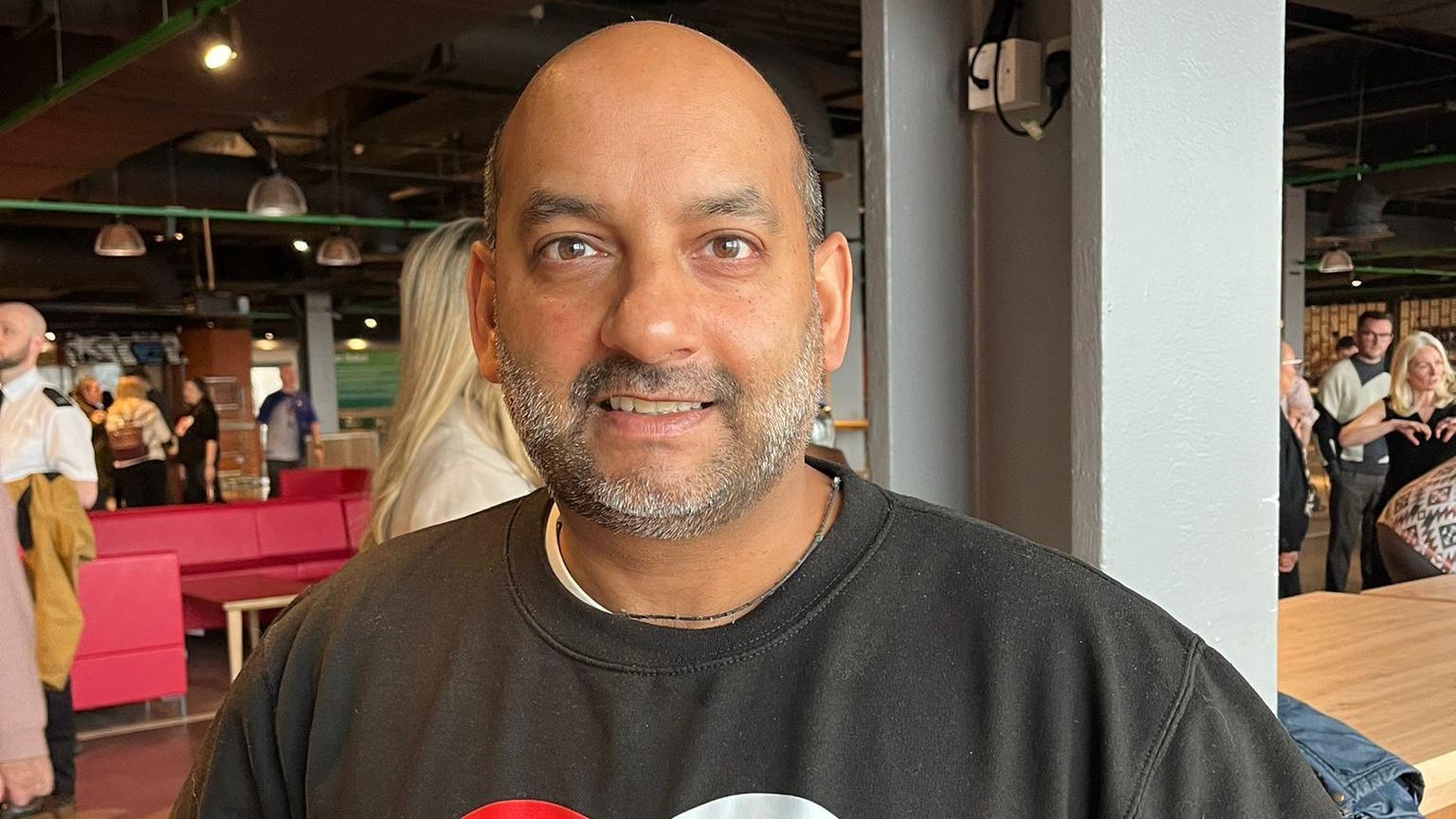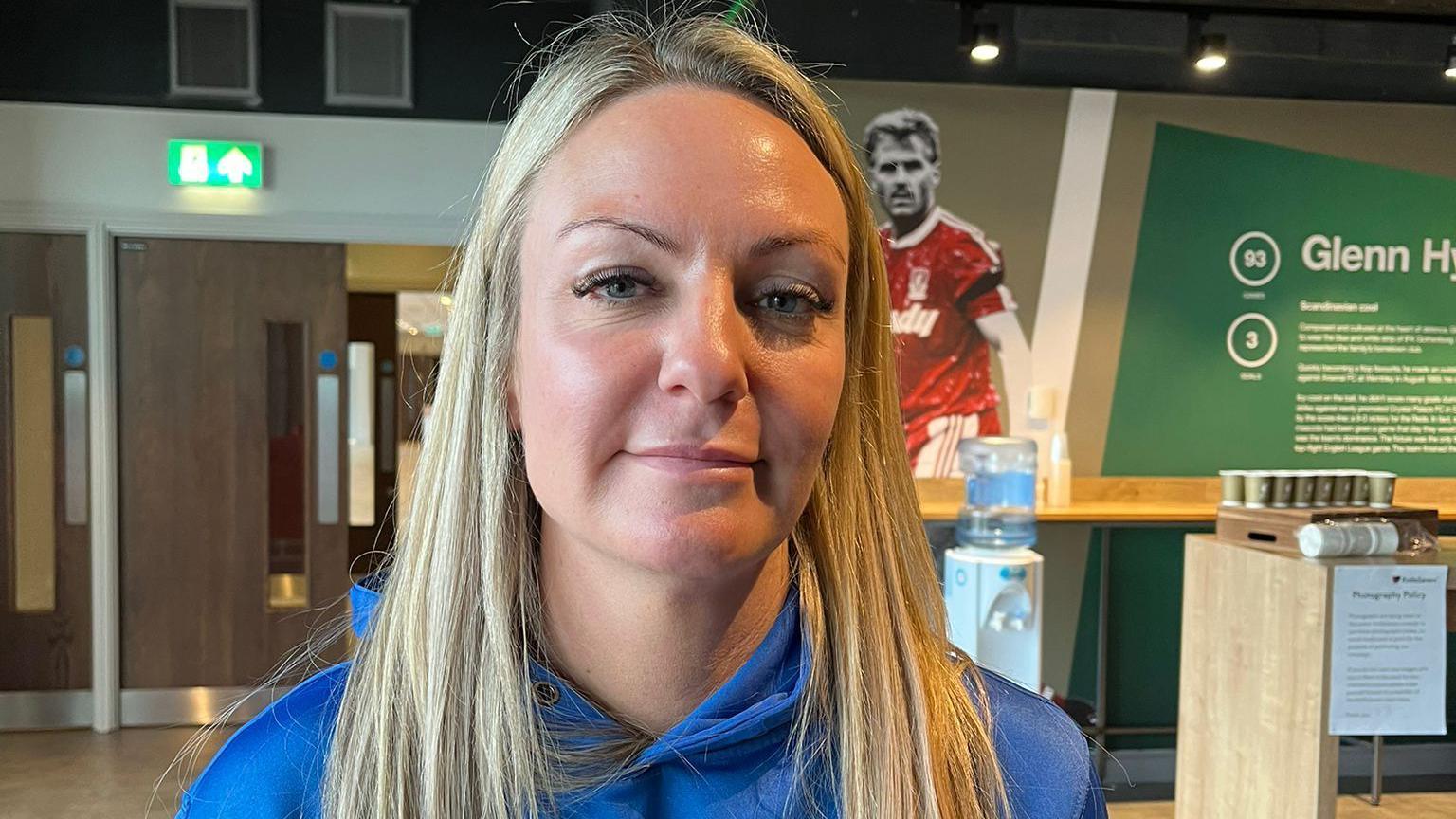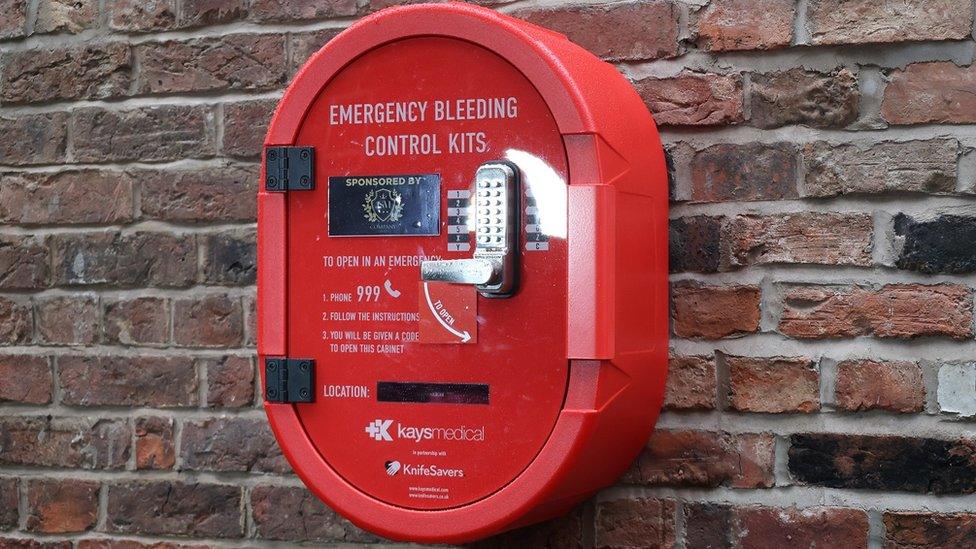Virtual reality reveals knife crime true reality

It is hoped virtual reality films may ultimately help to save lives in a number of ways
- Published
Knife crime campaigners hope virtual reality technology will help them get their message across about what the aftermath of a stabbing is really like.
A series of immersive films has been created, including one offering advice about how to effectively use bleed control kits to save a stabbing victim's life.
The technology has been demonstrated at a special event for secondary school pupils at Liverpool FC's Anfield Stadium.
Matt Littler, founder of technology firm ARK Immersive which developed the films, said he wanted young people to leave their session "armed with the knowledge of what [knife crime] does to the people left behind".

Trauma surgeon Nikhil Misra founded the Knifesavers charity and volunteers around his hospital shifts
Developers worked with Knifesavers, a charity formed by trauma surgeon Nikhil Misra.
In their spare time, Mr Misra and his colleagues give talks and lay on educational sessions about knife crime.
They have also been pushing to get bleed control packs installed in public places, including schools, across Merseyside.
The films show the perspective of first responders faced with gruesome scenes.
Victims' families are also shown suffering from trauma or grief weeks and months after a stabbing.
Mr Misra told the BBC: "From our perspective as the doctors, nurses and the surgeons from the major trauma centre, we see the devastation of a single knife injury and we want to communicate the impact of that to everyone."

Laura Hughes lost her brother Colin McGinty to knife crime in 2001
The Anfield event was organised by the kNOwKnifeCrime and Knifesavers campaign groups, alongside the LFC Foundation charity.
Laura Hughes, founder of kNOwKnifeCrime, has a deeply personal reason for her involvement.
Her brother, 21-year-old Colin McGinty, was stabbed to death in Bootle in 2001 in what turned out to be a case of mistaken identity.
"If Colin died now in the year that we're in, he might not make a headline," she told BBC News. "Or he might make a headline, but only for a minute.
"And the reason is because knife crime is much more prevalent than it ever has been, which is why the campaign has been born."
Ms Hughes said it was vital younger children were told about the impact of carrying a knife.
"The reason I prefer to work with primary schools is they are little sponges, much more susceptible to taking on your message," she said.
"Once you've got to secondary school, you're a bit too cool for school sometimes."
Listen to the best of BBC Radio Merseyside on Sounds and follow BBC Merseyside on Facebook, external, X, external, and Instagram, external. You can also send story ideas to northwest.newsonline@bbc.co.uk, external
Related topics
More like this
- Published19 December 2023
